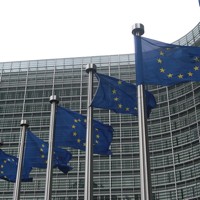In a decision that came as a surprise to most, the European Union was awarded the Nobel Peace Prize last week. The announcement quickly shifted attention from a development that had dominated the European news just days before: the failed merger between defense giants EADS and BAE, which could also be considered the death knell of strategic Europe. In light of this missed opportunity for Europe to rise to a global defense role, some observers had only cynical remarks for the prestigious peace award.
The failed EADS-BAE merger marks the second unsuccessful effort since 1997 to move the European defense industry beyond its political clientelism and toward a global commercial dimension. Indeed, the European defense industry has struggled for 20 years with the need to restructure and adapt to global markets, but the effort has been systematically torpedoed by narrow-minded national interests, all too often driven by the desire to avoid short-term job losses. This is also, it seems, what undid the deal that failed last week. Apparently, the consortium was not able to guarantee as many Munich-based jobs as Germany was seeking in the negotiations, an unacceptable outcome for Berlin with Bavarian state elections looming on the horizon.
The German veto of the merger is short-sighted, however. The future of defense industries is global, whereas European markets are shrinking. So while the current employment picture might be secured for now, the industrial and commercial basis for the German-French EADS consortium to compete for global orders is not promising. Worse still, EADS may now decide to seek a merger with non-European partners. How Europe will pursue its common security interests without a common defense industrial base to underpin them is the open question.

